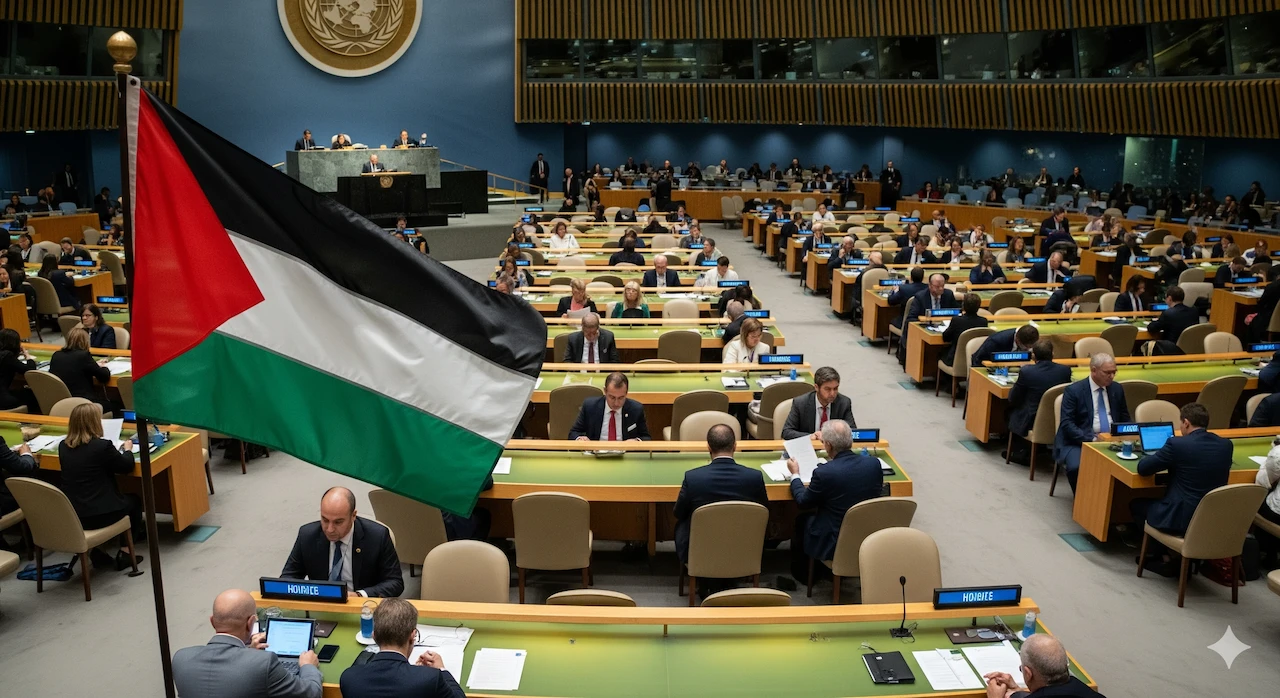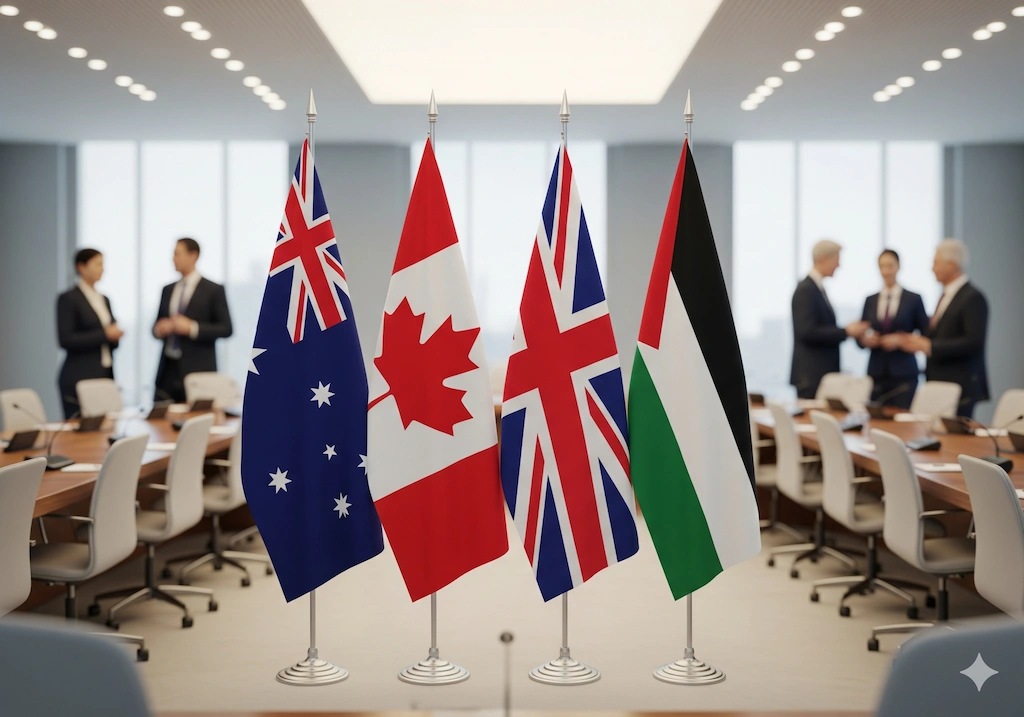GloNews10

In a historic move, the UN General Assembly recently recognized Palestine as an official state, a decision backed by Australia, Canada, and the United Kingdom. This significant development in the Israel-Palestine conflict marks a new chapter in global diplomacy. Despite opposition from Israel and the United States, this decision reflects growing international support for Palestinian statehood and has triggered widespread debates across political, social, and media platforms.
The quest for Palestinian recognition has been a central issue in international politics for decades. Since the mid-20th century, the region has witnessed continuous tension between Israel and Palestine, leading to numerous conflicts, peace talks, and failed negotiations. The UN has historically played a crucial role in mediating the Israel-Palestine conflict, with resolutions aimed at promoting peace and establishing a two-state solution.
Palestinian leaders have long sought global recognition to solidify their political legitimacy. Previous efforts have seen partial recognition by several countries, yet the backing of key nations such as Australia, Canada, and the UK significantly strengthens Palestine’s position on the world stage. The recent Palestine recognition at the UN General Assembly signals a shift in international perspectives, encouraging other nations to consider official recognition.

Australia, Canada, and the United Kingdom took a decisive step by voting in favor of Palestine at the UN General Assembly. This move is particularly noteworthy as it counters decades of strong opposition from Israel and the United States. These nations cited the importance of acknowledging Palestinian sovereignty and promoting stability in the Middle East as key reasons behind their vote.
The recognition is expected to have far-reaching implications. Diplomatically, it provides Palestine with enhanced leverage in negotiations, enabling the country to engage more robustly in international forums. Economically, recognition opens doors for formal agreements with other nations, potentially attracting foreign investments and humanitarian support.
Israel strongly opposed the UN General Assembly vote, calling it premature and counterproductive to peace efforts. Israeli officials expressed concerns that unilateral recognition could exacerbate tensions and hinder direct negotiations between the two parties. Similarly, the United States reaffirmed its position that Palestinian statehood should result from bilateral negotiations, warning that international recognition outside the peace process could escalate conflict.
Despite these objections, the UN General Assembly’s decision is a powerful statement. It reflects the growing sentiment among a majority of member states that addressing Palestinian statehood is essential for regional stability. As a result, the Israel-Palestine conflict is likely to enter a new phase, with increased international scrutiny and diplomatic engagement.
The recognition of Palestine has sparked discussions worldwide, from political arenas to social media platforms. Many countries praised the UN General Assembly decision as a step toward justice and peace. Social media has seen trending hashtags such as #PalestineRecognition, #UNVote, and #MiddleEastPeace, reflecting global interest and debate.
International organizations, human rights groups, and influential policymakers have also weighed in. Analysts note that this recognition could encourage other countries to formally recognize Palestine, potentially reshaping alliances and influencing geopolitical strategies in the Middle East. The global response underscores the importance of multilateral diplomacy in resolving long-standing conflicts.
The Palestine recognition at the UN General Assembly introduces both opportunities and challenges. On one hand, it legitimizes Palestinian governance and strengthens calls for a two-state solution. On the other hand, it risks intensifying tensions with Israel, which may view the move as an infringement on its negotiating prerogatives.
Peace initiatives, negotiations, and international aid programs will now operate in a transformed context. Observers expect that the recognition could accelerate diplomatic discussions, encourage new peace proposals, and invite increased international monitoring of conflict zones. However, analysts caution that meaningful progress will require cooperation from both Israel and Palestine alongside sustained global engagement.
The news of Palestine’s recognition quickly dominated headlines worldwide. Major media outlets reported extensively, highlighting the political significance, historical context, and potential repercussions for the Israel-Palestine conflict. Social media platforms amplified these discussions, with users from various countries debating the implications for global politics, human rights, and regional stability.
The trending nature of this story is evident from the surge in online searches, tweets, and news coverage. Keywords like Palestine recognition, UN General Assembly, and Israel-Palestine conflict consistently appear in news feeds, indicating strong global engagement. Influencers, policymakers, and journalists continue to analyze the decision’s impact, making it one of the most discussed international topics today.
The UN General Assembly’s recognition of Palestine is more than a symbolic gesture; it represents a significant milestone in international diplomacy and the ongoing Israel-Palestine conflict. With support from Australia, Canada, and the UK, Palestine now has increased legitimacy and visibility on the world stage.
While opposition from Israel and the United States poses challenges, the global discussion generated by this recognition is essential for fostering awareness and engagement. As nations, organizations, and individuals continue to debate the implications, the path toward lasting peace in the Middle East remains complex but more prominent than ever.
The world now watches closely to see how this recognition will shape negotiations, influence alliances, and contribute to a more stable and just resolution for Palestine. The UN’s decision may not end the Israel-Palestine conflict, but it undeniably reshapes the conversation, offering hope for a future grounded in diplomacy and dialogue.